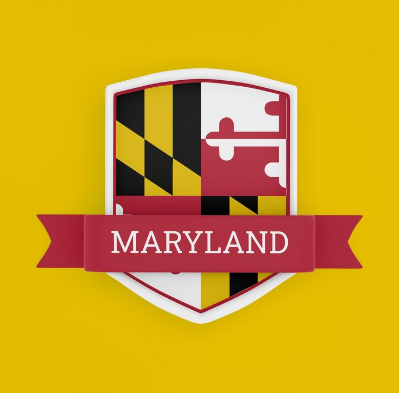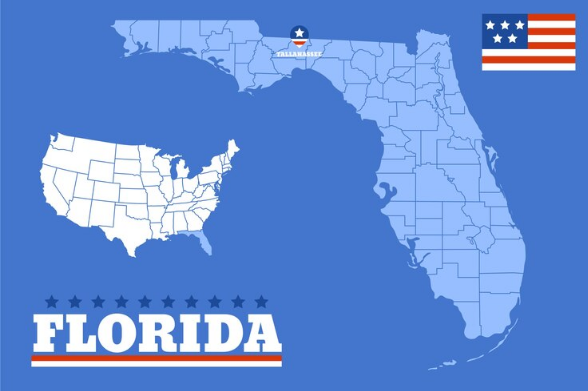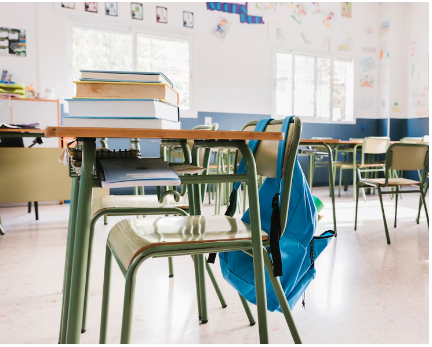Dyslexia Schools In Mississippi:Everything You Need to Know

Looking for the Right Dyslexia-Friendly School in Mississippi? Here's What Matters Most
When picking a school for a child with dyslexia, it's important to go beyond just the name. The best dyslexia-friendly schools offer real support—like trained teachers, proven reading programs, and helpful technology.
In Mississippi, we looked closely at what each school offers. We talked to parents, teachers, and experts, and visited schools to see what really works. The schools we recommend have strong programs, caring staff, and a clear focus on helping students with dyslexia grow in confidence and learning.
We believe Mississippi families deserve that same level of support. This guide shares what to look for in a great dyslexia-friendly school, so you can feel confident in your decision.
Our goal is to help you find a place where your child will feel understood, supported, and ready to shine.
What is the Percentage of Dyslexia Amongst Students In Mississippi?
In Mississippi, approximately 20% of students are estimated to have dyslexia, aligning with national prevalence rates. This means that about one in five students may face challenges with reading and language processing. Despite this high prevalence, many students remain undiagnosed and lack access to the specialized support they need.
Mississippi has taken proactive steps to address dyslexia through legislation and educational initiatives. The state mandates universal dyslexia screening for all students in kindergarten and first grade, aiming for early identification and intervention.
Additionally, Mississippi offers a Dyslexia Therapy Scholarship program, allowing eligible students to attend approved schools that provide specialized dyslexia therapy.
However, challenges persist. The state currently has a shortage of Certified Academic Language Therapists (CALTs), with only about 150 serving approximately 100,000 students with dyslexia. This gap underscores the need for increased training and resources to support students effectively.
Efforts are ongoing to improve dyslexia support in Mississippi, including legislative actions and educational programs aimed at increasing awareness, diagnosis, and access to specialized instruction. Continued collaboration among educators, policymakers, and communities is essential to ensure that all students with dyslexia receive the support they need to succeed.
Sources: (rcstn.net) (readmississippi.com) (State Of Dyslexia)
Legislation and Policies for Dyslexia In Mississippi
Mississippi has established clear laws and policies to support students with dyslexia.
Early Screening
All public schools in Mississippi are required to screen children for dyslexia in the spring of kindergarten and the fall of first grade. The screening assesses skills like phonological awareness, decoding, and rapid naming. If a child doesn't pass, parents are notified, and further evaluations can be conducted by licensed professionals such as psychologists or speech-language pathologists.
Dyslexia Therapy Scholarship
Students diagnosed with dyslexia can apply for the Mississippi Dyslexia Therapy Scholarship. This scholarship allows them to attend approved nonpublic schools that specialize in dyslexia education. To qualify, students must have a formal diagnosis and have been enrolled in a public school during the previous school year.
School Responsibilities
Once a student is diagnosed with dyslexia, schools must develop interventions and provide necessary accommodations to help the student succeed academically. This includes creating tailored strategies to support the student's learning needs.
Funding Support
In 2024, Mississippi introduced the Mississippi Student Funding Formula, replacing the older funding system. This new formula allocates additional funds to support students with higher educational needs, including those with dyslexia. The goal is to ensure that schools have the resources to provide appropriate support for all students.
For more detailed information or assistance, you can visit the Mississippi Department of Education's Dyslexia page: (Mississippi Department of Education)
Sources: (AP News) (Mississippi Department of Education)
What Type of School Is Best For a Dyslexic?
The ideal schools are the ones where students can learn without all that unnecessary stress weighing them down.
Plus, these schools are all about recognizing the unique strengths that come with dyslexia, like creativity and thinking big-picture.
If your kid has a special interest, whether it's engineering, chess, music, or anything else under the sun, these schools give them the time and space to chase their passions.
Forget about just hunting for "reading programs" right away because, believe it or not, dyslexic students often thrive when their reading lessons align with their interests.
Now, here's the deal: if your child isn't loving school and isn't coming home all pumped up about learning, it might be time to explore other options. And guess what? That's perfectly okay – even awesome.
You can take your child out of a place that doesn't fit, even if you don't have the next school lined up right away. It's a powerful message to your child that you're in their corner and ready to support them.
Let them take a breather, catch up on some sleep, and in the meantime, you can figure out the next steps together.
Looking for learning difference/dyslexia friendly schools? Here are some must ask questions to help you pick the right dyslexia friendly school for your child.
Before attending your meeting, do a bit of background research. The more you know about dyslexia, teacher education programs and intervention programs, the more targeted you can be with your questions and the better you will understand the answers.
Support Services for Students with Dyslexia in Mississippi
Mississippi offers several support services for students with dyslexia, coordinated by the Mississippi Department of Education (MDE).
Dyslexia Screening and Identification
- Mandatory Screening: All students are screened for dyslexia in the spring of kindergarten and the fall of first grade. (State Of Dyslexia)
- Intervention Services: If a student is diagnosed with dyslexia, schools are required to develop interventions and strategies to address their needs, providing necessary accommodations to support their educational progress.
Also Read Best Autism Schools in Florida (For Children and Adults)
Dyslexia Therapy Scholarship Program
- Scholarship Availability: Parents of students diagnosed with dyslexia can apply for the Mississippi Dyslexia Therapy Scholarship, which allows their child to attend an approved public or nonpublic school that offers specialized dyslexia therapy.
- Approved Schools: Some of the schools approved to accept students with this scholarship include:
- Magnolia Speech School (Madison)
- 3D School (Petal)
- Lighthouse Academy (Ocean Springs)
- Innova Prep (Hattiesburg)
- The Canopy School (Ridgeland)
- Magnolia Speech School (Madison)
Sources : (Mississippi Department of Education) (Mississippi First)
School District Grants
- Grant Recipients: The MDE has awarded dyslexia grants to several school districts to enhance their support for students with dyslexia. For the 2024–2027 period, grant recipients include:
- Columbia School District
- Rankin County School District
- South Tippah School District
- Starkville Oktibbeha School District
- Vicksburg Warren School District
- Columbia School District
Source : (Mississippi Department of Education)
Teacher Training and Certification
- Dyslexia Awareness Training: Educators and paraprofessionals are required to complete at least four hours of dyslexia awareness training every three years to stay informed about identification and instructional strategies. (State Of Dyslexia)
- Dyslexia Therapist Licensing: Professionals can become licensed dyslexia therapists by completing an MDE-approved Orton-Gillingham-based training program, which includes extensive coursework and clinical experience. (Mississippi First)
Additional Resources
- Parent and Family Guides: The MDE provides guides to help families understand dyslexia and navigate available support services.
- Dyslexia Support Materials: Schools have access to approved dyslexia screeners, classroom support materials, and training resources to assist in providing effective instruction to students with dyslexia.
For more detailed information and resources, you can visit the Mississippi Department of Education's Dyslexia page.
Best Dyslexia schools In Mississippi
- Lighthouse Academy for Dyslexia – Ocean Springs, MS (Grades K-12)
Special Service: Lighthouse is a Christ-centered, accredited school that uses the Orton-Gillingham method daily. Small class sizes (6:1 ratio) help students receive focused, personal attention. They also include STEM, arts, and engaging field trips to develop all learning areas.
Visit Website
- The 3-D School – Petal & Ocean Springs, MS (Grades 2-3)
Special Service: This school offers full-day, dyslexia-specific programs for second and third graders. Licensed therapists provide daily instruction using proven methods. Their curriculum includes arts and field trips to keep learning fun and meaningful.
Visit Website
- Starkville Academy – Starkville, MS (Grades K-12)
Special Service: Offers a full Dyslexia Therapy Program with multisensory Orton-Gillingham-based learning. Students receive therapy four times weekly in small group sessions. This helps build reading, spelling, and overall confidence in a supportive setting.
Visit Website
- T.K. Martin Center – Mississippi State, MS (Grades 1-12)
Special Service: Provides customized reading and writing support twice a week using Orton-Gillingham methods. The center also offers assistive technology and handwriting instruction, making learning easier for students with dyslexia.
Visit Website
- The Canopy School – Ridgeland, MS (Grades K-8)
Special Service: The Canopy School supports students with severe dyslexia challenges. Accredited and now accepting scholarships, it helps children gain the skills they need to succeed and confidently return to traditional schools when ready.
Visit Website
- DuBard School for Language Disorders – Hattiesburg, MS (Ages 3–13)
Special Service: Affiliated with the University of Southern Mississippi, DuBard teaches kids with language disorders and dyslexia using its unique method. It offers intensive instruction to help children grow in communication and reading.
Visit Website
- Magnolia Speech School – Madison, MS (Grades PK-6)
Special Service: This school supports students with speech and reading challenges, including dyslexia. Teachers use tailored instruction to meet individual needs and focus on communication, reading, and building student confidence.
Visit Website
- New Summit School – Jackson, MS (Grades K-12)
Special Service: Offers a strong program for children with learning differences like dyslexia. With small class sizes and experienced teachers, students receive a tailored approach to help them succeed both academically and socially.
Visit Website
- North New Summit School – Greenwood, MS (Grades K-12)
Special Service: An extension of New Summit, this school offers the same strong dyslexia support. Students benefit from personalized learning plans and caring educators focused on helping each child meet their full potential.
Visit Website
- South New Summit School – Hattiesburg, MS (Grades K-12)
Special Service: A branch of the New Summit School network, this school helps students with dyslexia through one-on-one support, personalized lessons, and a calm, encouraging environment to help them thrive.
Visit Website
Also read Dyslexia Schools In Alabama



